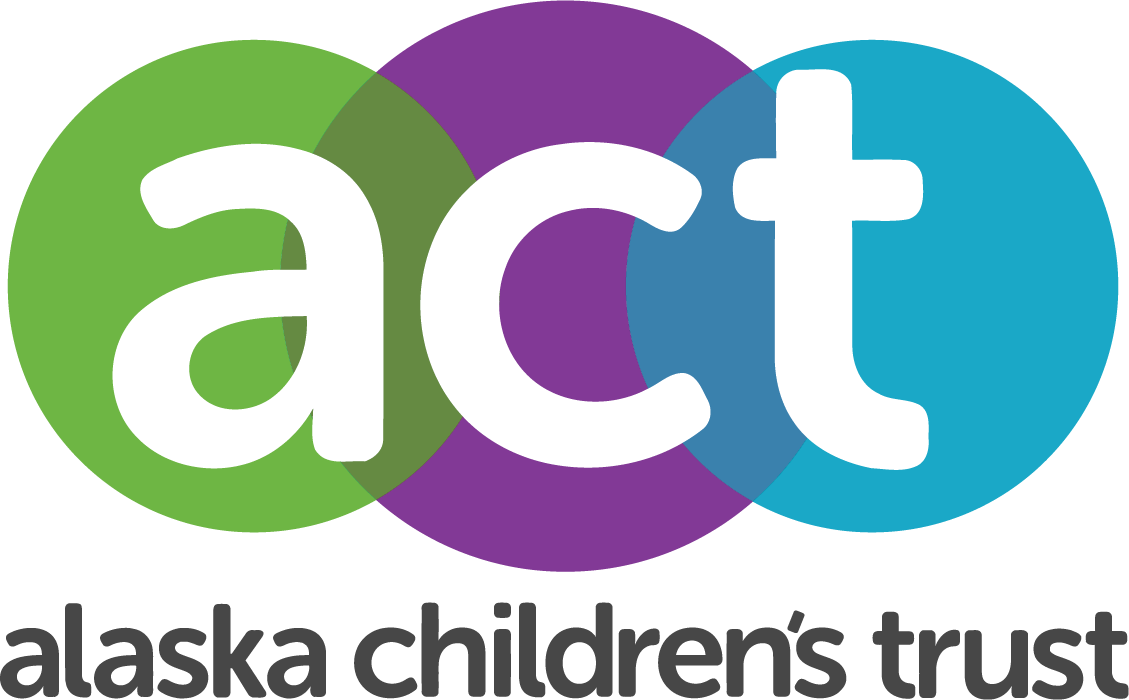10 Ways to Help Prevent Human Trafficking in Alaska
January is Human Trafficking Awareness Month, and with children and youth one of the groups most vulnerable to human trafficking, ACT is looking to make sure you have the tools you need to recognize and report instances of trafficking. ANTHC data shows that since 2007, the National Human Trafficking hotline has received 86 case reports of human trafficking in Alaska, but only 16 of those reports have been made by victims and survivors. These numbers show us that everyday Alaskans must take on the mantle of recognizing and reporting in order to protect the most vulnerable in our communities.
However, we at ACT recognize that we are just one of many Alaskan organizations working to end human trafficking, and strongly encourage you to look to organizations like Covenant House Alaska, Standing Together Against Rape (STAR), Alaska Native Women’s Resource Center, Alaska Native Victims for Justice, and the FBI branch in Alaska for additional information.
1) Know the Signs
Learn the red flags and indicators of trafficking. Understand common myths about trafficking and facts about it.
“There is no single profile of a trafficking victim. Victims of human trafficking can be anyone—regardless of race, color, national origin, disability, religion, age, gender, sexual orientation, gender identity, socioeconomic status, education level, or citizenship status. But as is the case in many crimes of exploitation and abuse, human traffickers often prey upon members of marginalized communities and other vulnerable individuals.”
- U.S. Dept. of Justice
2) Report a Tip
A large majority of cases of human trafficking are not reported by the victims themselves, but by people like you. Know what to look out for and who to call. Connect with state resources like: Covenant House Alaska's 24 hour hotline: 907-272-1255 STAR (Standing Together Against Rape) 24 hour hotline: 907-276-7273 Or contact the National Human Trafficking Hotline by calling 1-888-373-7888 or texting HELP to BEFREE (233733)
3) Spread the Word
Share this post with family and friends to let everyone know that National Human Trafficking Hotline and local Alaska organizations are here to help.
January is Human Trafficking Awareness Month, let's all spread the word!
Share it on Facebook here, or share it on your Instagram story here.
4) Register for a free training
Covenant House Alaska and the FBI have trafficking 101 and 201 trainings that cover grooming behaviors, signs of trafficking, and interventions to prevent trafficking and help survivors. One course on recognizing trafficking is by the Polaris Project, which works to prevent trafficking worldwide. Take the free course here: polarisproject.org/training/
For partner organizations, consider taking "SOAR Online: Responding to Human Trafficking Through the Child Welfare System"
5) Volunteer locally
Do a quick search online to find anti-trafficking organizations in your area and ask how you can support. Alaska Native Justice Center, Covenant House Alaska, STAR (Standing Together Against Rape), and other organizations are often looking for volunteers or donations!
6) Stay informed
Sign up for the Office of Traffic in Perons' newsletter, follow the Administration for Children and Families’ Twitter & Facebook. Read national reports as they are released and articles about human trafficking in AK. Follow Standing Together Against Rape (STAR) on Facebook: facebook.com/star.alaska
ACT also tracks and shares information on bills relating to human trafficking. Sign up for our advocacy updates or general emails here.
7) Think before you shop
Know which goods may be produced by child or forced labor. You can use directories like thehonestconsumer.com/ethical-brand-directory and humantraffickingsearch.org/shopping-slavery-free/ to learn more about the brands you buy from.
8) Use your skills
No matter what sector you work in, think about how you can offer pro-bono services and support to survivors and what policies you can advocate for in schools, healthcare settings, and elsewhere. Think about signage you could put up at your workplace or practices you can advocate to have put in place that protect vulnerable populations like workers with limited English proficiency, temporary visas, or youth.
9) Learn about the laws
Learn about Alaska's human trafficking laws, like the exciting 2022 passing of House Bill 325! HB325 makes significant changes to Alaska's sexual assault statutes, including how the state of Alaska defines consent.
Learn more about Alaska's human trafficking laws in general & how you can improve them.
Learn more about HB325.
10) Raise your voice
Ask your representatives what they're doing about human trafficking in your area. Stay up to date with legislative developments (by joining our listserv here) and let your representatives know what your community needs.
“Alaska’s human trafficking laws fail to address the breadth of trafficking crimes committed against children while lacking the nuance to ensure justice and support for survivors. With laws that experts consider to be the worst of any US state, our representatives must make sweeping changes if we are to rid our state of human trafficking.” - Covenant House Alaska
Thank you.
For caring for each other and our Alaskan communities. You can and do make a difference.










